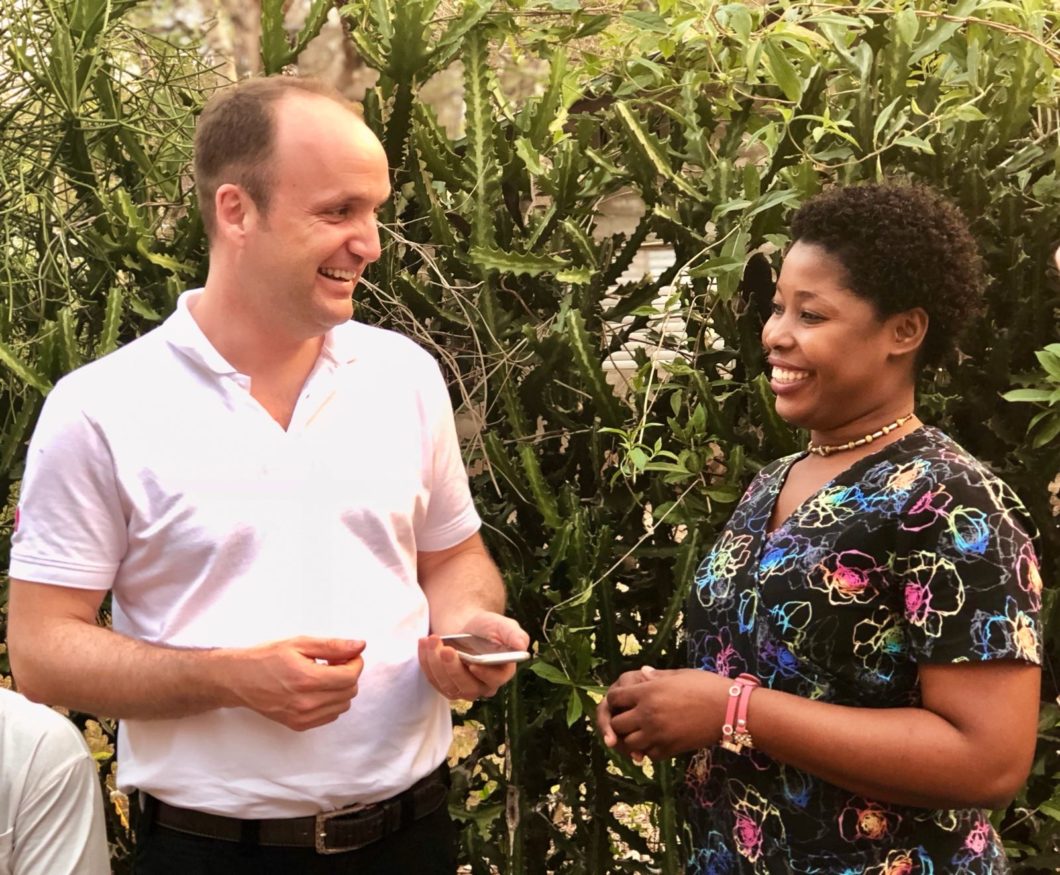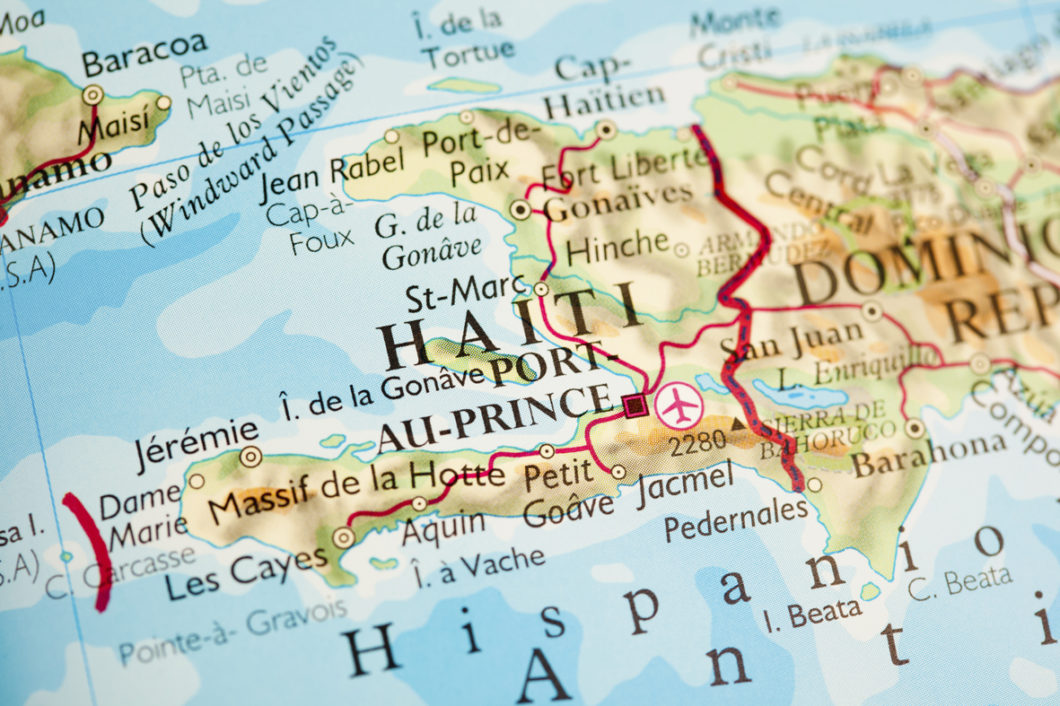
“Our team consists of talented improvisers”
medi for help continues helping people to help themselves in difficult times
Severe earthquake shook the Caribbean state of Haiti in January 2010: more than 200,000 people lost their lives and over 300,000 were injured, some of them seriously. This was the initial impulse behind medi for help. Since then, more than 7,500 patients have received care, local technicians have been trained and even a Haitian workshop management team has been established to provide long-term support.
A “mobile clinic” now facilitates the local provision of care and is often the only way in which Haitians living in more rural areas can get medical help. medi for help also provides support in the treatment of chronic wounds and lymphatic diseases and trains nurses together with the university in Léogâne. In the interview, medi project manager Christoph Schmitz reports on current goals and why providing support in Haiti is particularly important now.

Mr Schmitz, “helping people to help themselves” is the goal of medi for help. Why is long-term support still so important in Haiti?
“The people of Haiti are far from having recovered from the 2010 disaster. The country is still experiencing unrest. Time and again hurricanes or social unrest lead to chaotic conditions and the developing country continues to face numerous challenges. Many local people would not have access to health care without external support. Many patients still have injuries to their extremities or severe traumas from road traffic accidents. Our medi for help workshop is the only service for people affected by these issues locally. People are in need of our help, perhaps more so than ever. We rely on the cooperation with our collaborative project partner, the Hôpital Albert Schweitzer, to provide such help. In this way, we ensure that our funds flow into long-term support. And it is this close cooperation that makes effective support possible in the first place: only by working together with local partners who are familiar with the cultural conditions and assess the situation correctly can our help get where it is needed. We are therefore particularly proud of having given over the workshop management responsibility to Haitian hands in 2017.”
This year saw particularly high levels of social unrest in Haiti. What does this mean for medi for help?
“We felt the effects of the unstable situation in 2019 to a very significant extent. There has been a lot of political unrest and the local situation is alarming: cars are set on fire, there is often neither water nor electricity and the country is becoming a legal vacuum. This makes visits and transportation extremely unsafe and logistics difficult to maintain. For example, a container full of aid supplies that we dispatched months ago is still on its way to Haiti. However, the workshop is in urgent need of materials. All the more reason for us to be pleased that we continue to keep the care figures stable. Fortunately, our team in Haiti is made up of people with genuine improvisational talent who get creative in these difficult times and make the best possible use of our stocks. We also had to postpone planned visits in 2019 and our volunteer programme, in which trained orthopaedic shoe technicians provide support in Haiti, has currently been suspended. The local situation is too unsafe and the Federal Foreign Office strongly advises people against travelling to the country. That makes it especially important for us to keep up the effort. Many organisations are withdrawing and the media is also paying less attention to the crisis region. We believe that this makes it even more important to provide support right now.”
What plans and wishes do you have for the future of the aid project?
“We are currently preparing the collaborative project for the future in order to successfully continue the medi for help story, even under the new framework conditions. In addition to providing prosthetic care, we would like to expand our lymphological services, develop training concepts and train local specialists. For medi for help and the people of Haiti, we hope that the political and social situation stabilises. Our dream is to further improve the quality of care and expand it regionally, for example with our “mobile clinic”. Access to medical assistance is still one of the biggest problems for local people, especially for people living in more rural areas. In short: We want to consolidate our services in a more stable environment in a sustainable way and expand our services regionally. We want to keep working towards this with medi for help.”
Thank you very much for the interview, Mr Schmitz.

State of emergency in Haiti1
Haiti is the poorest country in the western hemisphere: around 80% of Haitians have to live on less than USD 2 per day, with half of the population even being forced to live on less than USD 1 per day. The country is highly dependent on humanitarian, financial and technical support from abroad, as well as money transfers from Haitians living abroad to family members still living in Haiti. The political and social situation in the country is very problematic. Nationwide protests intended to force the President to resign have continued to grow since February 2019. The population is becoming increasingly dissatisfied with corruption and the waste of state resources. This, in turn, leads to recurring violent protests. Violent unrest has ramped up significantly since the beginning of September 2019 due to the continuing unstable situation in Port-au-Prince and some provincial towns. Road blockades, some of which are set on fire, cause repeated and considerable disruption to traffic, as well as significant bottlenecks in the supply of water, food and petrol.
1 Haiti: Travel and safety instructions. Published online at: https://www.auswaertiges-amt.de/de/aussenpolitik/laender/haiti-node/haitisicherheit/205048 (Last accessed 15.11.2019).